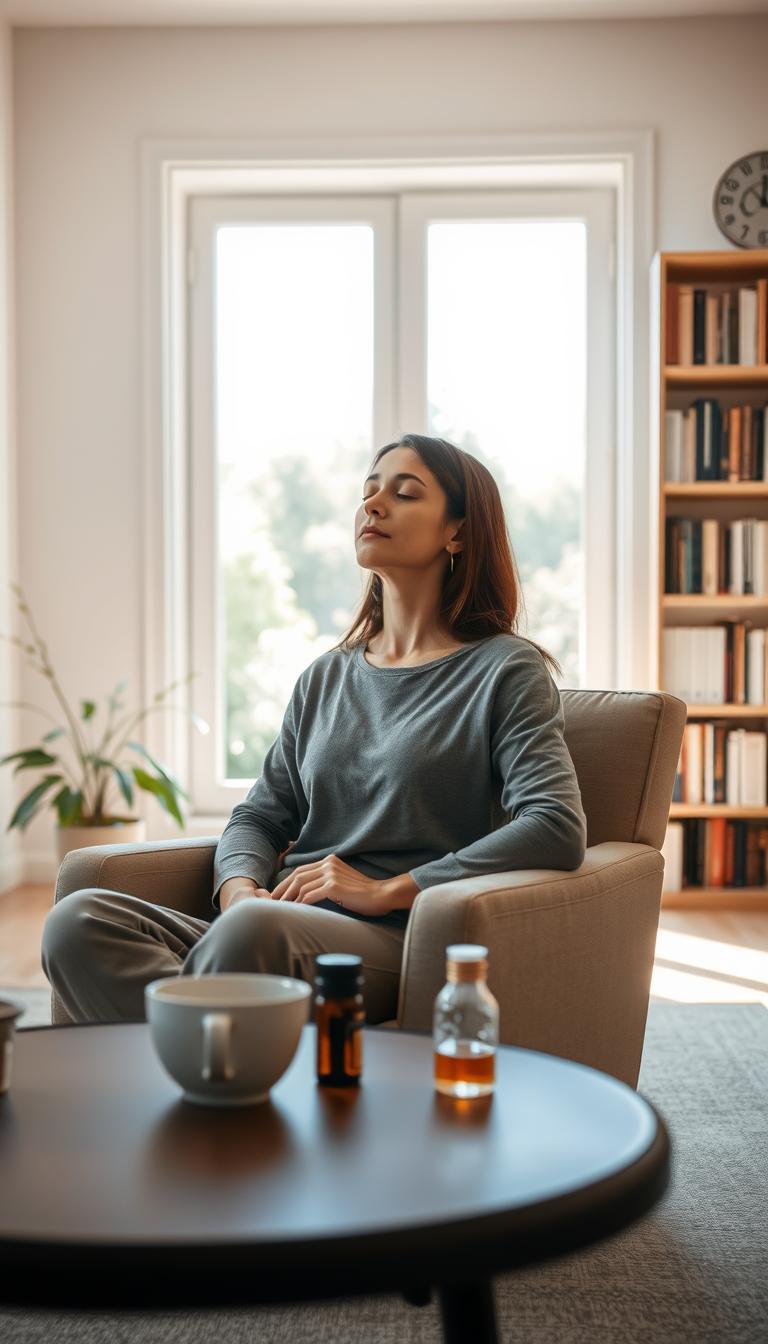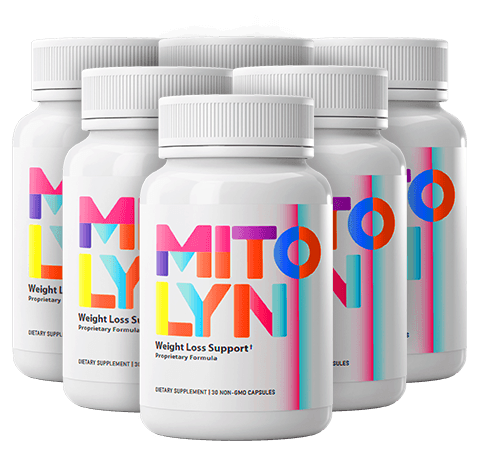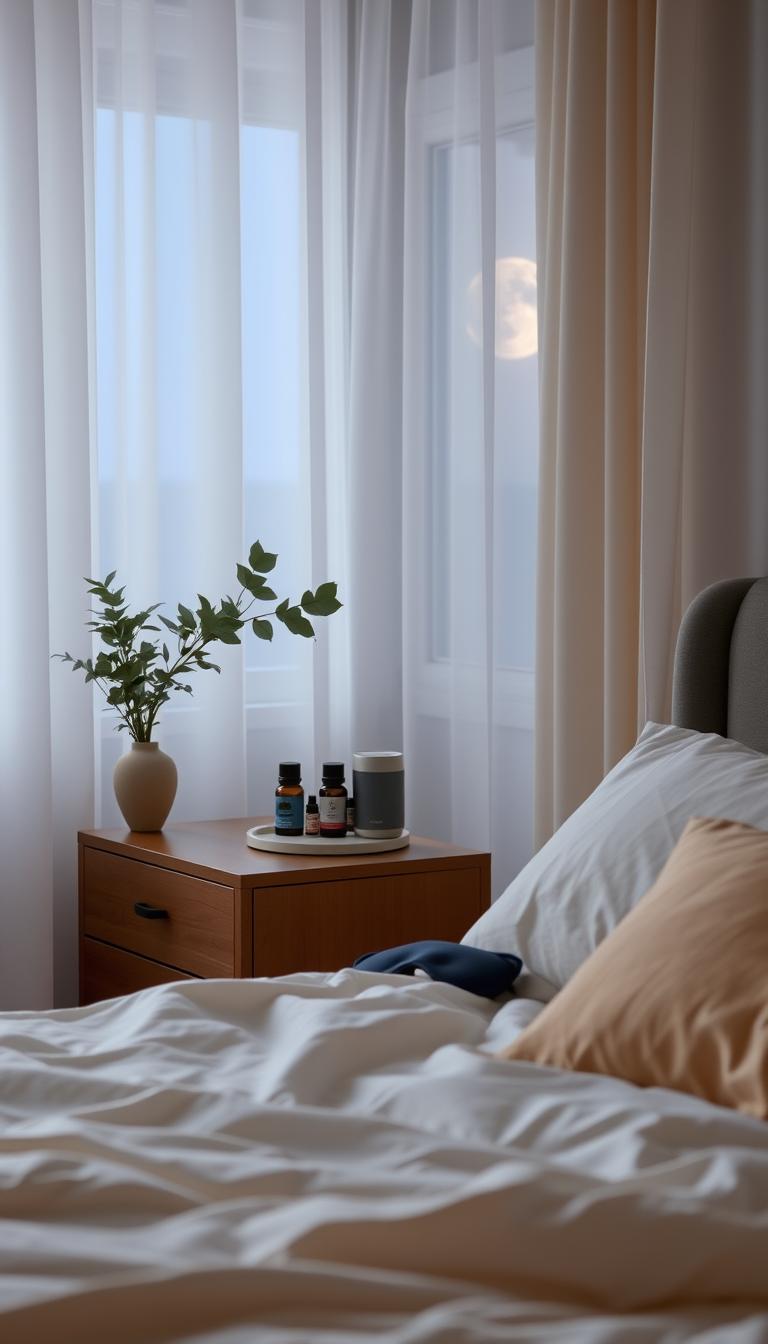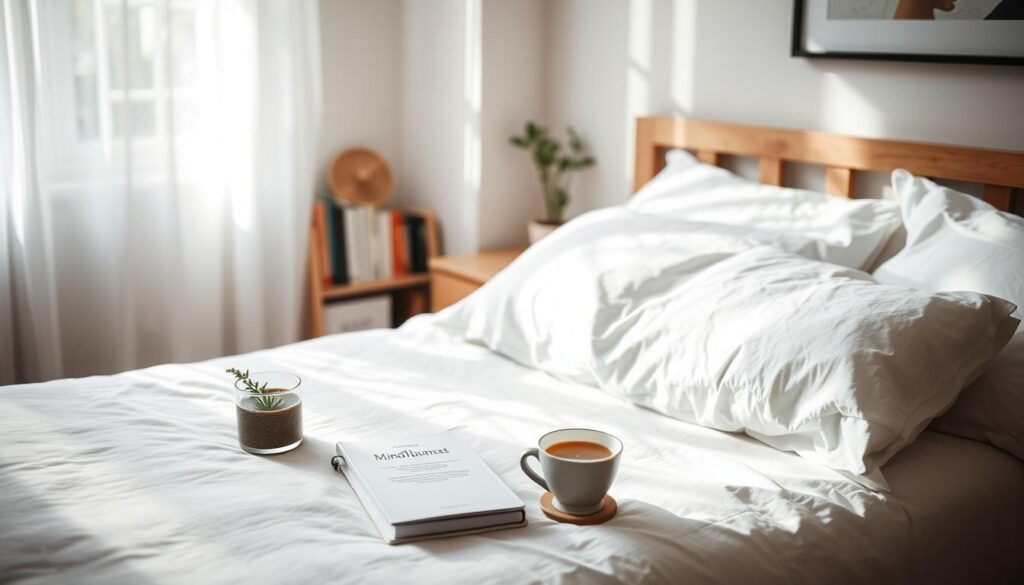
Imagine waking up feeling full of energy and calm. That’s what self-care can do. It’s not just about skincare or lotions. It’s your shield against life’s ups and downs.
Over 77% of people say self-care makes them less stressed and happier. But many still think of it as a luxury. What if your morning coffee was a moment to pause? Or your skincare routine made you feel more confident?
Self-care products are more than pampering. They help take care of your mind and body. Think of the 60% who pick beauty routines that match their skin type. Or the 200% increase in mental health apps helping people relax.
Maybe you’ve tried self-care routines that didn’t stick. The trick is to start small. Drink 8 glasses of water a day. Swap one generic product for something that fits you better. Sleep 7-9 hours to improve your focus. Every choice matters.
Key Takeaways
- 77% of people report self-care reduces stress and improves quality of life.
- Personalized self-care products boost satisfaction by 30% compared to generic options.
- Over 200% more people now use mental health apps for tailored wellness support.
- 65% stick to routines when they’re personalized, not forced.
- Small habits—like daily hydration or 10-minute meditation—build lasting wellness.
The Rising Importance of Self-Care in Modern Life
Life today is fast. We get lots of emails and stare at screens all day. Self-care is not a luxury but a must. It’s about making choices every day to keep you healthy.
Why Self-Care Is No Longer Optional
Digital overload and stressful jobs leave us little time to rest. Without self-care, burnout is sure to come. Neglecting yourself can harm your health.
But, simple actions like walking or deep breathing can help. They can make your mind and body feel better.
How Self-Care Impacts Your Health
- Reduces anxiety and depression symptoms by up to 40% (clinical studies).
- Strengthens immunity and lowers heart disease risk by managing chronic stress.
- Boosts productivity and mood, helping you tackle daily tasks with clarity.
Breaking Down the Myths
Many think self-care is selfish or takes too much time. But it’s actually the opposite. Just 5 minutes a day of meditation or journaling can help you support others.
Even if you’re busy, you can still practice self-care. It’s about being consistent, not perfect.
Self-care is not just a trend. It’s a way to keep yourself and your loved ones healthy. Start small. Your body, mind, and relationships will appreciate it.
Understanding the Five Dimensions of Self-Care
Self care isn’t the same for everyone. To create a good routine, focus on five main areas: physical, emotional, mental, social, and spiritual. Here’s how to care for each part for overall wellness.
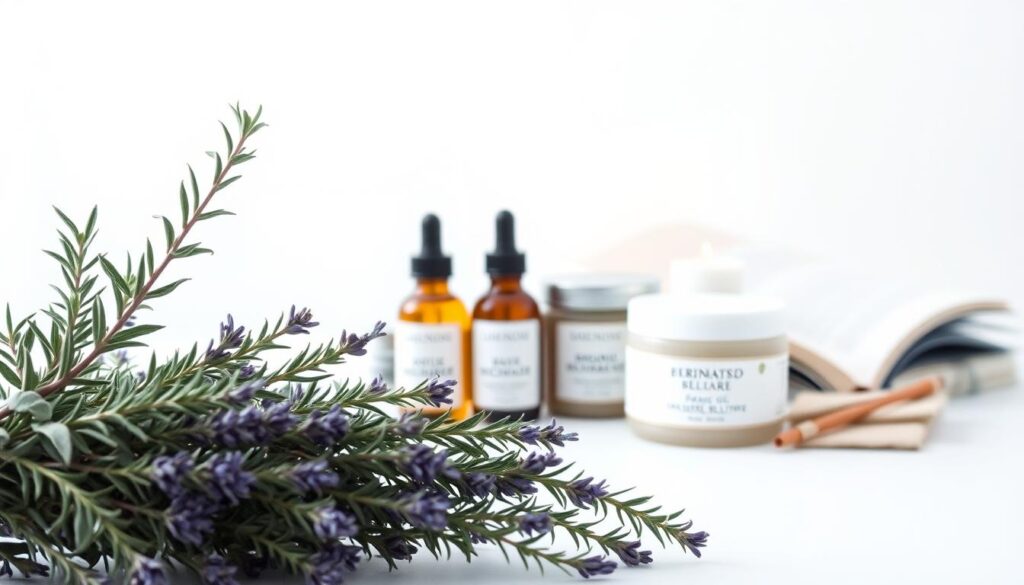
The World Health Organization (WHO) says self-care is a “multidimensional process” to boost well-being. Let’s explore how to use this in our daily lives.
| Dimension | Focus Areas | Self Care Ideas |
|---|---|---|
| Physical | Exercise, nutrition, sleep | Follow the Surgeon General’s 150-minute weekly exercise guideline—try a 30-minute walk five days a week. |
| Emotional | Feelings and boundaries | Journal emotions daily or set clear limits to protect your energy. |
| Mental | Cognitive stimulation | Read a book, solve puzzles, or take online courses to keep your mind sharp. |
| Social | Connections and community | Join a club or schedule weekly calls with loved ones to fuel belonging. |
| Spiritual | Purpose and values | Meditate, volunteer, or write about what matters most to you. |
Begin with small steps: Add one self care idea from each column each week. For instance, pair a yoga session (physical) with a gratitude journal entry (emotional). These small actions will help build a routine that covers all your well-being needs. Remember, what works for you might not work for others. The aim is to make a plan that feels good and fun for you.
Essential Self-Care Products That Transform Your Wellness Journey
Choosing the right self care products can make small rituals big. Even if you find it hard to focus on wellness, the right self care essentials can help. Here’s how to pick items that really help.
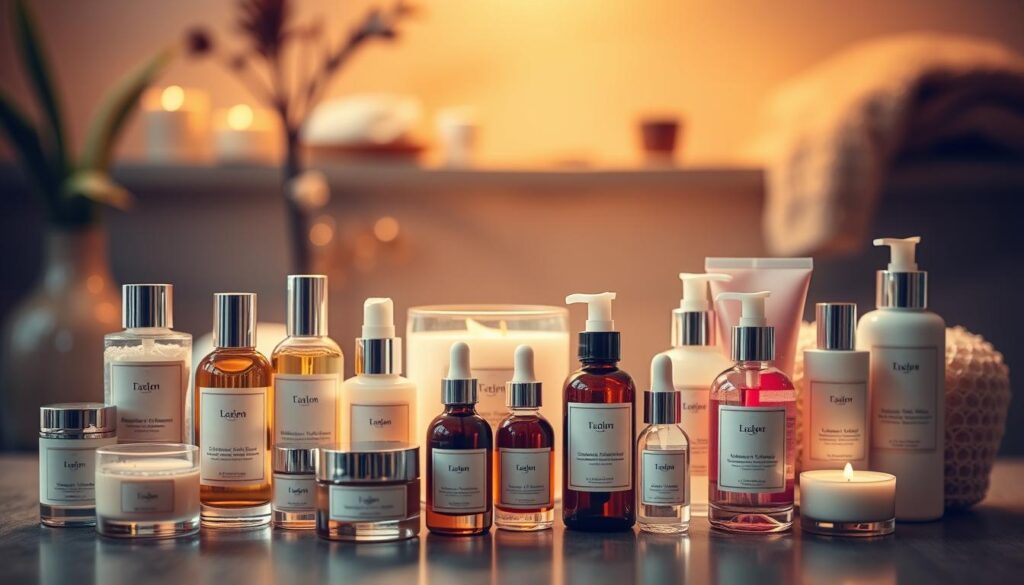
Begin with skincare and body care. Use gentle cleansers, moisturizers, and masks. For example, the Slip Silk Pillowcase reduces skin friction by 43%. It’s perfect for busy days.
A Royal Craft Wood Bathtub Caddy keeps your bath area tidy. It turns showers into peaceful moments.
Mindfulness tools help you stay calm. Apps like Headspace grow by 50% each year. A Vitruvi Diffuser with lavender oil also calms your mind.
A Bearaby Cotton Napper ($199) offers comfort. The Five-Minute Journal ($28) helps with gratitude. It’s linked to better mental health.
Nutrition and hydration essentials are key. A Larq Self-Cleaning Bottle ($118) keeps water clean. A Vitmix E310 blender makes healthy meals easy.
For better sleep, try blackout curtains, sound machines, and PS Lavender Magnesium Flakes ($7). The UG Scuffette Slippers ($95) add comfort. Track your sleep with a Whoop Band.
Choose products that fit your needs. From a $26 Hum Ashwagandha Gummies to a $50 Royal Craft Caddy, find what works for you.
Building Your Perfect Self-Care Essentials Routine
Creating a self care routine is easy. Start with small steps like a 5-minute morning stretch or a 10-minute walk. Research shows even short daily habits can last. It takes about 66 days to form a routine, so be patient.
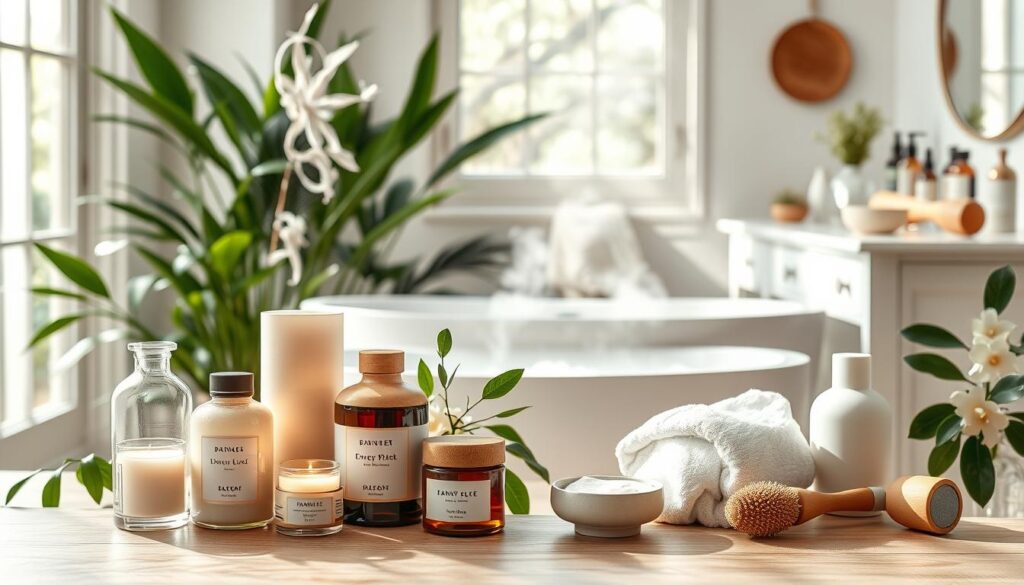
- Mornings: Start your day with purpose. Try journaling or a quick meditation. Just 5 minutes of deep breathing can lower stress.
- Midday: Take short breaks. A 15-minute walk or desk stretches can help you focus. Drink water or eat a healthy snack too.
- Evenings: Relax with calming activities. A skincare routine or reading in soft light tells your brain it’s time to unwind.
- Weekends: Spend 2-3 hours on deeper self care. This could be yoga or a hike in nature.
| Time | Activity | Benefit |
|---|---|---|
| Morning | 5-minutes mindful breathing | Reduces cortisol levels |
| Midday | 15-minute walk | Boosts productivity |
| Evening | Skincare ritual | Supports skin health |
| Weekend | Yoga session | Enhances flexibility and calm |
Remember, 70% of people enjoy their self care activities. But don’t forget about important tasks like annual checkups. Mix fun with necessary care for overall wellness. Use a simple checklist to track your progress. Marking small wins keeps you motivated.
Quick Self-Care Tips for Even the Busiest Schedules
Even with a packed calendar, small moments of care add up. These self care ideas fit into your day without slowing you down:
- Desk stretches every hour: Loosen tight shoulders with 2-minute neck rolls or wrist stretches.
- Hydrate smart: Slice cucumbers (95% water) into water for a refreshing, hydrating boost.
- Gratitude pause: Write one thing you’re grateful for in a notebook—studies show this habit lowers stress and improves sleep.
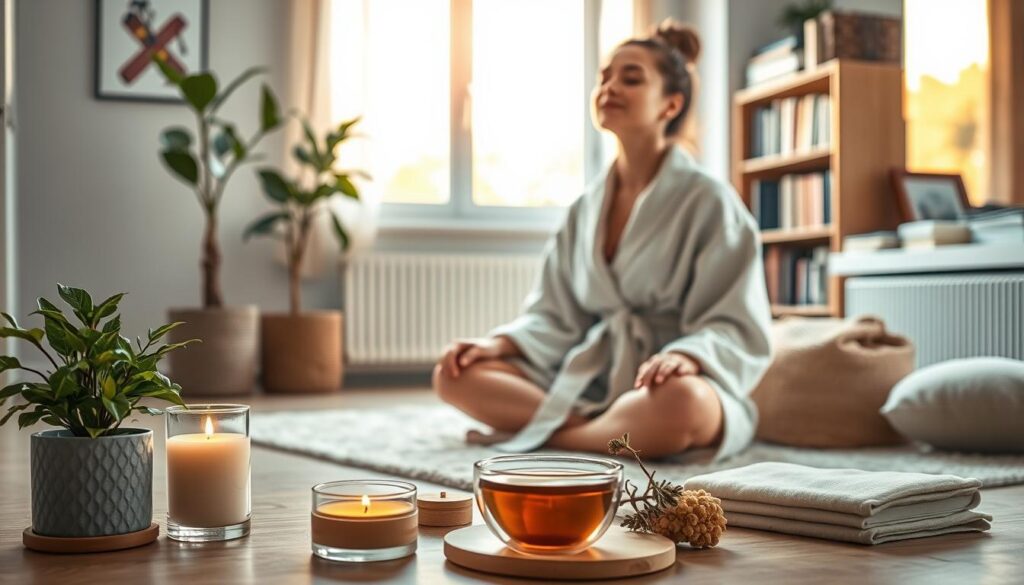
| Action | Time | Impact |
|---|---|---|
| Deep breathing | 3 minutes | Reduces cortisol levels instantly |
| Phone-free lunch break | 5 minutes | Boosts focus and mood |
| Walking meeting | 15 minutes | Raises energy and creativity |
Even tiny moments matter. A 10-minute walk outside can lower anxiety. A 5-minute posture check can ease tension. Pair these self care tips with habit stacking: stretch after coffee or meditate during TV breaks. Remember, 200-500 mg of tea flavonoids daily (like green tea) support heart health too. Choose actions that fit into your day easily—no extra time needed.
Self-Care Activities That Nurture Your Mental Wellbeing
Small moments of mindfulness or creativity can change your mind. Doing self care activities that fit your needs makes you stronger mentally and emotionally. Let’s look at ways to make daily life healing.
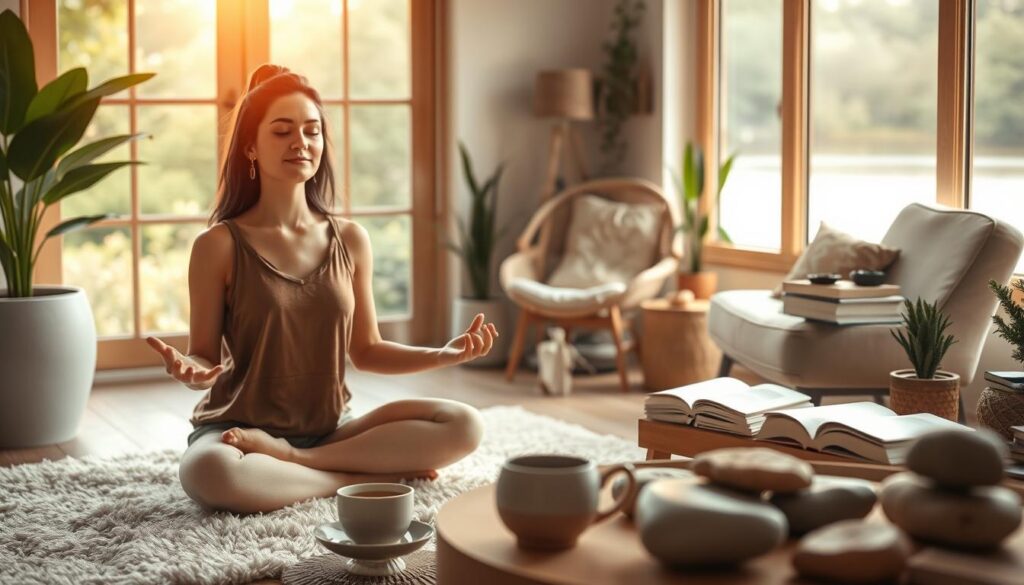
Meditation and Mindfulness Practices
Begin with 10 minutes of guided meditation on apps like Headspace or Calm. Yoga combines breathwork with gentle stretches. Studies show it can lower stress and improve focus by 25%.
Try mindful walking—focusing on each step—to stay present.
Journaling for Emotional Health
Write down three things you’re grateful for each day. This trains your brain to find the good. It also helps you vent frustrations or track your mood. Studies show it can cut self-criticism by 40%.
Try a bullet journal or digital apps like Day One for easy tracking.
Creative Expressions as Self-Care
Doodle, write poetry, or knit—creativity doesn’t need to be perfect. Painting or playing music can calm your brain, reducing anxiety by 30%. Even coloring books or DIY craft projects are self care for mental health.
Nature-Based Healing Activities
Take a 20-minute walk in a park. Gardening or birdwatching can reconnect you with nature’s calm. Research shows outdoor time can lower stress hormones by 20%.
Even a balcony herb garden can be a healing space.
Choose activities that bring you joy, not stress. Mix these practices to create a routine that meets your needs. Small, consistent steps lead to lasting mental wellness.
Customizing Self-Care Approaches for Different Needs
“A personalized self-care plan is essential to address unique challenges and priorities.”

Everyone’s self-care journey is unique. Tailoring routines to your gender and life stage is key. This ensures practices truly resonate with your needs. Let’s explore how to design self-care that aligns with who you are and where you are in life.
Self care for women often focuses on hormonal shifts, mental health, and societal pressures. Try Curology’s free trial for skincare. It helps with breakouts or aging signs. Rest days during menstrual cycles or yoga ease PMS symptoms. Mental health check-ins with a therapist or journaling help navigate stress.
Self care for men might involve breaking barriers like societal expectations. Start small with a 10-minute meditation app session or weekly physical activity. Financial health checks or open conversations about emotions build resilience. Even simple acts like walking meetings or setting boundaries at work count.
Life stages shift priorities. Young adults might balance busy schedules with 10-minute breathwork breaks. Midlife may focus on preventive health screenings or family-care balance. Seniors could prioritize mobility exercises or social connections to combat isolation.
Life stages shift priorities. Young adults might balance busy schedules with 10-minute breathwork breaks. Midlife may focus on preventive health screenings or family-care balance. Seniors could prioritize mobility exercises or social connections to combat isolation.
| Self-Care Domain | Examples |
|---|---|
| Physical | 30-minute walks, 7-8 hours sleep |
| Emotional | Journaling, therapy sessions |
| Financial | Financial audits, budget apps |
| Spiritual | Meditation, volunteering |
Remember: self-care evolves. Review routines every 3 months to align with life changes. Small steps like a 5-minute morning stretch or a weekly check-in with yourself keep progress steady.
Creating Self-Care Spaces in Your Home
Turning a small part of your home into a self-care spot is easy. Pick a quiet area like a desk, a cozy nook, or even a closet. Make it your special place for self-care items like candles, journals, or yoga mats.
Lighting is key. Soft lamps, string lights, or curtains for natural light are best. Light blue walls or throw pillows help you relax. Green plants or blankets in earthy tones boost creativity and focus. A study shows 70% of people feel better in such spaces.
- Add a shelf for self care essentials like eye masks, journals, or aromatherapy diffusers.
- Use rugs or screens to create a visual boundary, signaling this area is for your alone time.
- Incorporate a basket for magazines or books—85% of wellness participants say reading in such spaces lifts their mood.

Even small areas can be great. A foldable mat for yoga, a wall hook for essential oils, or a hanging plant—all add up. Choose items that make you feel grounded, like a weighted blanket or a corkboard for affirmations. Minimalist setups with open shelves or foldable furniture make the most of small spaces.
Being consistent is important. Spend 10 minutes daily in this space to recharge. Keep your self care essentials within reach so routines feel effortless. Over time, this corner becomes your calm spot in busy days, caring for your mind and body without big changes.
Conclusion: Embracing Self-Care as a Lifestyle, Not a Luxury
Starting a self care routine is easy. Just try a 10-minute meditation or a short walk. Studies show 75% of people feel less stressed with regular self care. Also, 65% get sharper focus.
Brands like BetterHelp and Talkspace make mental health easy to access. Apps like MyFitnessPal help track nutrition. Remember, self-care is not selfish—it’s essential.
A 20-minute walk each day boosts energy and mood. Sleep routines also help avoid burnout. Even free activities like nature walks or journaling are as good as expensive products.
Begin with a simple habit like morning stretching or hydrating skincare. Over time, these habits build your strength. Studies show better sleep cuts mood disorder risks by 30%. Exercise boosts happiness by 20%.
The Rx4Miracles discount card makes medications affordable. This means no one has to skip care because of cost. Celebrate every small step towards better health.
Every self care tip you try makes you stronger. Your well-being is the base for success in work, relationships, and adventures. Start today with one small step. Your future self will be grateful.








